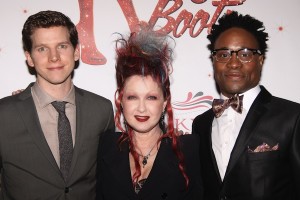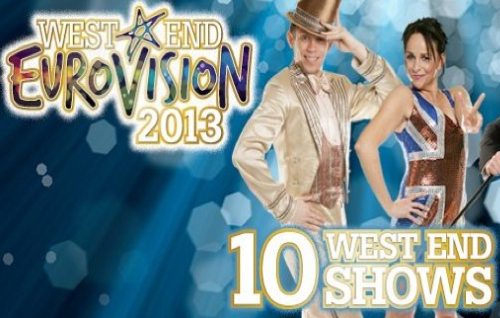
“By bringing people together we can begin to understand where different people are coming from.”
Kierstead, producer on Kinky Boots AND Pippin (cumulatively nominated for 23 Tony awards) proudly reveals the origins of his indisputable romance with the theatre and the motivation behind his investments.
“I’ve been working in I.T for 25 years. When I tell people that I produce theatre as well, they are surprised, but I was always a fan. I grew up twenty minutes outside of the city, so my parents brought my sister and I to see plays and I rapidly developed a taste for theatre. In 1998, I went to see a show that was running on Broadway called Side Show, by Bill Russell and Henry Krieger, the composer of Dreamgirls. I walked into the theatre as an audience member, but I left knowing that I had to be involved and wanting to bring theatre into people’s lives. It was a life changing show for me, and for many other people too. There was something about Side Show that was very unique and yet it had such a broad impact. I figured it was going to be the biggest hit ever, but it closed after 3 months.”
It is worth noting that Jim’s instinct for selecting the best-sellers has improved over time.
We shake our heads at the familiarity of the situation and discuss the fate of Top Hat in London, receiving its notice shortly after winning the Olivier for best new musical. We talk about award ceremonies. How representative are they and what difference would it make if Kinky Boots were to sweep the board at the Tonys?
“Winning a Tony is a great honour, but most importantly the Tony’s enable shows to tour the country. Unlike television and film, theatre is a very New York experience. The country for the most part is looking to the city to see what’s happening. Then they get excited about it if it comes to their town.”
So, for Kierstead, the Tony’s are the gateway between Broadway and the rest of the country, the vast expanse of land for which New York is the resonating epicentre of theatrical culture. However, Tony awards, for all their influence, are not the only way to sell tickets:
“There is a correlation between the awards and the reviews but what sells tickets most here is word of mouth. You can do all the advertising that you want, but if people aren’t leaving the theatre saying, ‘I really loved that,’ then it’s no good. When a friend gives me a recommendation, I run right out and get tickets. But, if you’re living in New York, you can see a lot more than if you’re in the Mid-West with less access. So, when people from further afield come to New York and spend money on tickets, (and maybe it’s the only thing they’ll see in the year or 5 years or 10 years) they want to see something that’s been branded, and that’s what the Tonys are able to do. A lot of people, for this same reason, go to see things with a recognisable title, something they know the story to rather than something brand new. It’s a safer bet.”
Matilda and Kinky Boots have divided public opinion; discussion is rife over which should be granted the prestigious best musical award. Many argue that Matilda, in the technical sense, is the better show but Kinky Boots has succeeded in capturing the hearts of the American people. What prompted Kierstead to take a risk on a new musical based in Northampton?

“Kinky Boots wasn’t a very big film in this country, but my friend and I watched it. I had no idea what it was going to be, but from the minute it started I knew I was going to love it. It was so different from what I expected. I kept it in the back of my mind for a long time. Then, at the end of 2011, our director went to the workshop production of the show and her reaction said it all. I said to myself, ‘This is going to be my first Broadway Show, I know it.’ But, first I needed to know that the music was great. For me, there are too many musicals where the music is a bit mediocre. I love Cyndi Lauper; I’m a kid of the 80’s so I know what she’s capable of doing, but I didn’t know how she would do Broadway. I got hold of the script and the workshop demo CD and played it in my car. From the first couple of notes I was gripped; it was amazing. I loved the whole score and from then on, I worked endlessly to be involved in it.”
To what does Kierstead accredit the show’s commercial success? He responds without hesitation:
“Kinky Boots is approachable. It is for everybody, hence our marketing slogan: ‘Everybody say Yeah!’ It’s not meant for a particular cross-section of the population. You have to tell a story that people are going to respond to. Not every show is a happy show, but it has to touch the heart and be an emotional experience. For me, theatre is best at bringing people together and creating that shared energy in the room. By bringing people together we can begin to understand where different people are coming from.”
There doesn’t tend to be a correlation between making money and making art. Within your role as producer, how often do you have to strike a difficult compromise?
“A Broadway producer has to love the art of theatre. Why else would they take such a risk? If you don’t love theatre you can go and sell widgets on the sidewalk; you’d probably do a lot better! You come into this inherently loving theatre and wanting to bring it to audiences, but equally, you have to figure out how to sell the product. I’m responsible for people’s money, for the money investors have entrusted into the show. If you are asking people to invest in something that isn’t commercially viable, I think you’ve got a big problem on your hands and you’re not going to be around long. You have to ensure the show is artistically sound but also keep in mind how to keep it running. In commercial theatre, we need to appeal to people without a theatrical background. If you can be good on both sides, then you are good. It is always about compromise.”
Will we be seeing Kinky Boots on the West End any time soon? There is already talk of a transfer.
“If I was to make a prediction, I’d say that we will bring it over. However, if we do, we will work on the dialogue first. Americans don’t get into the British accents. They Americanise it. But, it’s a British story so we’d want to work on those and make them real.”
Kierstead makes an important point here. After the show, the actors were quick to defend their ‘subtle’ Northampton accents, explaining that the dialogue in Billy Elliot for example, had been difficult for Americans to understand.
I will be curious to see how UK audiences do react to Kinky Boots, quintessentially American in its adaptation of the narrative and yet possessing the unique ability to bring ecstatic audiences to their feet, flinging their arms about in approval, filling the theatre with a fury of applause. Whether or not we will be ‘dancing in the aisles’ in London remains to be seen, but with 13 Tony nominations and full-houses every night, things are certainly looking good for Kierstead and his Kinky Boots.



Be the first to comment